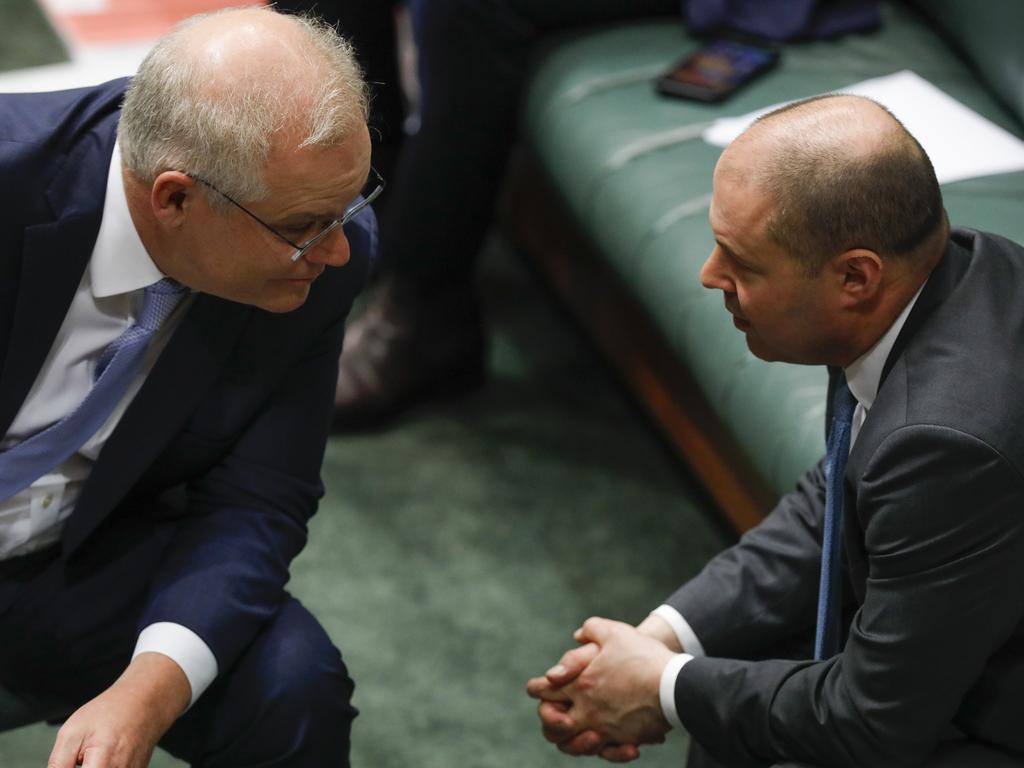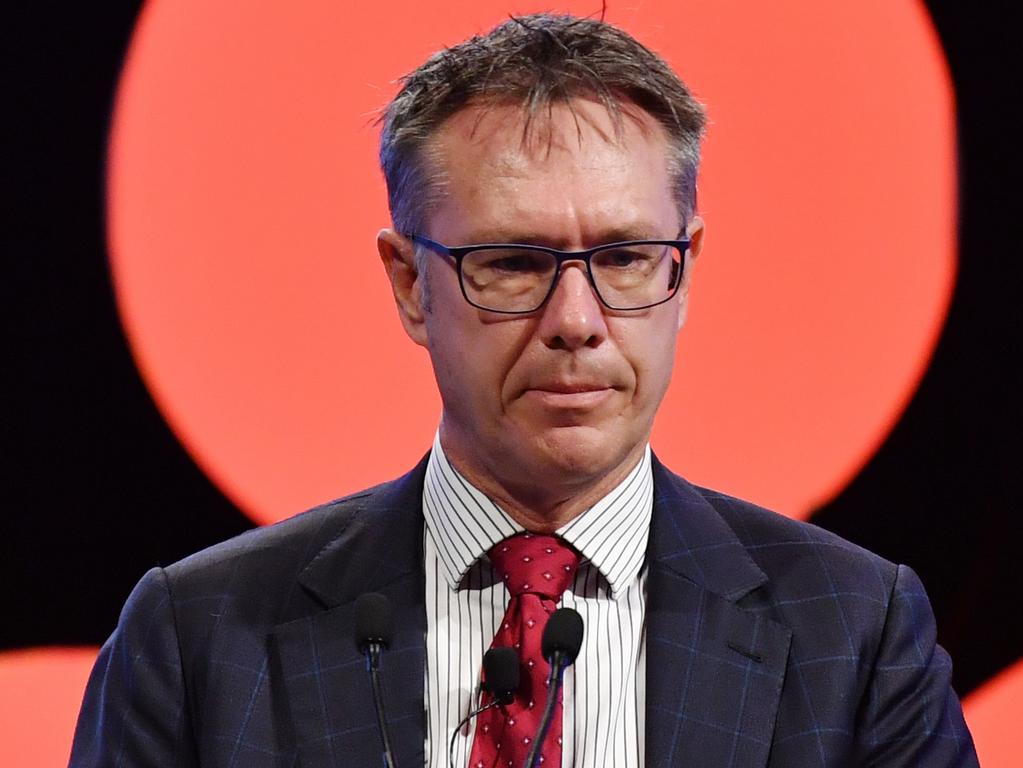Urgent plan to save uni researchers, says Dan Tehan
The federal government may bring forward hundreds of millions of dollars of research spending.

An emergency plan to bring forward hundreds of millions of dollars of research spending to save university jobs and keep vital programs going is being considered by the federal government.
The proposal, discussed by government officials with a select group of vice-chancellors advising Education Minister Dan Tehan, would bring forward up to $700m to boost research spending in 2021-22, deducting it from the $2.1bn planned spending on higher education research in 2024-25.
SPECIAL REPORT: Our top 250 researchers revealed
The money would slow the job cuts in universities, where more than 11,0000 positions have been lost in the past few months. The research-intensive Group of Eight universities have warned that 4000 of their researchers will come to the end of their contracts over the summer, with no certainty they can be re-employed.
Universities expect to lose $4bn-$5bn this year from the loss of international students due to COVID-19 travel restrictions. New figures show the number of international students commencing courses in the July 2020 mid-year intake fell 45 per cent compared to last year. The data from the federal Department of Education also showed that tens of thousands of international students deferred study because of COVID. About 50,000 had temporarily pulled out of their courses and not resumed by mid-year.
At least 66,000 international students, or 13 per cent of the total, were studying online from overseas in July.
The proposal to bring forward spending to give research a short-term boost has attractions for universities because it is the only way to lift taxpayer-funded research funding, at least temporarily, in the current tight fiscal environment where the government is unwilling to allocate more money to higher education.
However, it is a only a stop-gap solution and carries the major risk that if international students don’t return to Australia and fill university coffers then the research funding will collapse in 2024-25.
The Group of Eight said this month that Australia faced “the potential loss of nearly 10,000 top-quality researchers who are likely to be snapped up by other nations willing to put a premium on their research abilities”.
With university research in crisis, the government is under pressure to announce a solution in the October 6 budget. Mr Tehan told Radio National on Monday that he was working on plans. “We’re working with the sector to see what we can do to help and support when it comes to research and research jobs,” he said.
But Mr Tehan’s spokesman declined to comment on the proposal to bring forward research funding, saying the minister did not comment on budget speculation.
Australia’s oldest universities — the University of Sydney and the University of Melbourne — warn that medical research could be the first to suffer if the research gap is not addressed.
University of Sydney deputy vice-chancellor (research) Duncan Ivison said on Tuesday the pandemic and the lack of funding was stopping necessary investment in the kind of medical laboratories hunting for a COVID-19 vaccine.
“In the short to medium term, the experimental sciences are the disciplines which will be worst hit because of the struggle to make the investments in infrastructure. The laboratories, the equipment, the kit researchers need,” he told The Australian.
“The awful thing it is the medical and life sciences that might suffer the most — the area the world is rightfully looking at most at the moment — and the hit on humanities will be serious but different.
“We take the Education Minister at his word. We need to collectively fill this structural research funding gap. Not because it’s in the interest of the universities but because it’s in the interest of the country.”
University of Melbourne deputy vice-chancellor (research) Jim McCluskey also warned medical research would be hurt by a funding shortfall — along with the performing arts and humanities — and said industry was unable to fill the hole left by student fees.
“This will impact on the physical and biological sciences, medicine, and engineering and technology areas that require expensive kit, laboratories,” he said.
“There will be impacts on students and scholars in the performing arts area where demand has dried up and also many of our humanities researchers cannot maintain their work in the absence of access to special collections critical to their research.
“We’re also seeing a downturn in industry-sponsored research because many industries cannot afford it due to the impact of COVID-19 on revenue. This is also impacting early career researchers across most disciplines whose capacity to obtain the funding they need has been constrained by this reduced funding from the industry sector.”
Professor McCluskey also said the research funding gap was hurting 60,000 graduate students who could not access research facilities and face a difficult academic job market.
“There is an almost forgotten research workforce of more than 60,000 graduate researchers across the nation doing PhDs and masters degrees by research under huge duress as their living stipends are expended without being able to work productively on shutdown campuses and whose job prospects have taken a major hit,” he said.







To join the conversation, please log in. Don't have an account? Register
Join the conversation, you are commenting as Logout